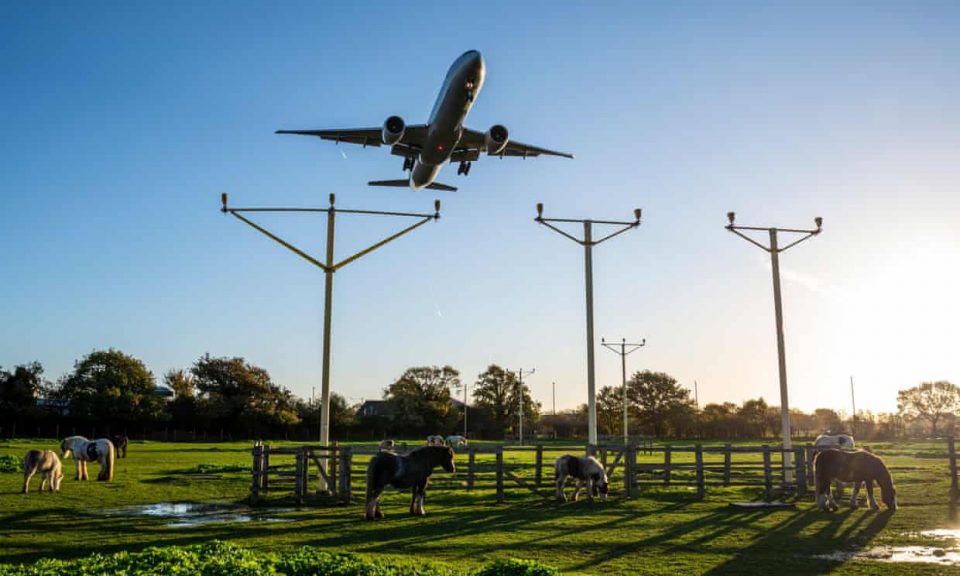In 2020, Rachel Reeves, the Member of Parliament for Leeds West and Pudsey, articulated her opposition to the proposed expansion of Leeds Bradford Airport. She argued that it would “significantly increase air and noise pollution,” and therefore, from an environmental perspective, the expansion should not proceed.
By the fall of 2021, as the shadow chancellor, Reeves had become a prominent leader in the Labour Party’s ambitious vision for a green industrial revolution, promoting a transformative shift towards renewable technology. This initiative was Labour’s flagship proposal: the notion that “going green” would not only foster economic growth for the UK but also contribute to environmental sustainability made the pairing of “green” and “growth” particularly appealing.
“I will be a responsible chancellor. I will be Britain’s first green chancellor,” Reeves declared at that year’s Labour conference, emphasizing that a Labour government would invest £28bn annually into a green energy overhaul, generating jobs and prosperity while ensuring a sustainable future for the coming generations.
However, in recent weeks, some members of her party, feeling increasingly disenchanted, critiqued Reeves for seemingly relinquishing her claim to be Britain’s first green chancellor just seven months into her role. Before the upcoming general election, Reeves had already scaled back the ambitious £28bn pledge, and her announcement on Wednesday that she supported a third runway at Heathrow—along with plans to develop the area between Oxford and Cambridge into “Europe’s Silicon Valley”—seemed entirely focused on pursuing economic growth.
Unfortunately, this shift appeared to indicate a quiet neglect of environmental concerns and the climate emergency. London’s mayor, Sadiq Khan, expressed his outrage. Reports emerged – which were not rebutted – suggesting that several ministers, including Energy Secretary Ed Miliband, had voiced opposition to the proposal during cabinet meetings due to its stark contradiction to Labour’s proclaimed green agenda and environmental commitments.
One senior party member remarked, “If we proceed with this, we might as well disregard climate change completely.” Another source expressed frustration, stating, “The green aspect of our strategy has been significantly downplayed. The focus is now solely on growth.”
The response from environmental advocates was largely one of cynicism rather than outright fury. “The reaction from the green community was surprisingly muted because everyone knows a third runway at Heathrow is essentially a pipe dream,” remarked one environmentalist. “The political implications are daunting, it could take an eternity to realize, the first flights wouldn’t occur until 2040, it necessitates rerouting the M25, which is absurd, and it could potentially lead to us breaching our climate commitments without delivering anywhere near the economic benefits she suggests.”
Many within Labour viewed the Heathrow expansion element of the growth agenda as a sign of desperation. The chancellor maintained that her support for Heathrow expansion dates back to 2017 and that any advancements would be contingent upon adherence to the UK’s international climate commitments. However, concerns regarding her strategy are growing. “The potential benefits of moving forward with Heathrow are minimal, while the drawbacks are significant; it’s simply unwise politically,” commented a party insider.
As the year began, Reeves was eager to win back the favor of the business sector after her unpopular budget, which imposed substantial national insurance increases on companies. The mounting urgency to stimulate growth for generating revenue became increasingly crucial in early January amid a turbulent bond market, which raised concerns about the UK government’s ability to manage its debts. “That was the moment they got rattled,” a source explained. “The idea of Heathrow really didn’t gain traction until the start of this year—after the market turmoil.”
Perhaps the most troubling aspect for Reeves is not the political backlash, but the widespread derision directed at her reasons for reintroducing the Heathrow expansion discussion.
Aoife O’Leary, CEO of Opportunity Green, a campaign organization, has examined the claims surrounding sustainable aviation fuel, which Reeves has labeled a “gamechanger,” and dismisses them as “essentially a mirage.”
She elaborated: “Yes, these fuels are biofuels derived from crops, cooking oils, and other plant biomass sources. However, their production consumes vast amounts of land, jeopardizing food security and biodiversity.
“In fact, very little of these fuels exist currently, and producing sufficient quantities to decarbonize aviation would fundamentally conflict with any sustainability goals.
“Purchasing these fuels would also result in substantial financial outflows from the UK, as most ‘sustainable’ aviation fuel is imported, with wood pellets coming from overseas forests just to be burned for jet fuel.”
In her remarks, Reeves referenced a recent study by Frontier Economics, which posited that a third runway at Heathrow “could raise potential GDP by 0.43% by 2050.” It has since emerged that this survey was commissioned by Heathrow itself and utilized data provided by the airport.
“It is alarming that the chancellor seems to be basing her support for the Heathrow expansion on a figure from a report commissioned by Heathrow airport,” pointed out Alex Chapman from the New Economics Foundation. “Even more concerning is that the methodology applied was deemed inadequate by the Department for Transport, and the report relied on forecasts supplied by the airport.”
Chapman further commented: “Expanding Heathrow poses a significant threat to the UK’s climate objectives and contradicts scientific recommendations. To verify the claimed economic advantages, assessments should be executed by independent economists from the government, adhering to best-practice methodologies.”
Within the Treasury, the quest for new avenues of economic growth is becoming increasingly urgent. Reports indicate it is the exchequer rather than Downing Street driving an ambitious renegotiation with the EU regarding post-Brexit trade. Reeves has stated that she intends to leave “no stone unturned.”
Some close to the chancellor suggest that she is intentionally testing limits. One insider remarked, “In a way, she has little to lose. If these initiatives fail, she can at least claim she made the attempt.”


